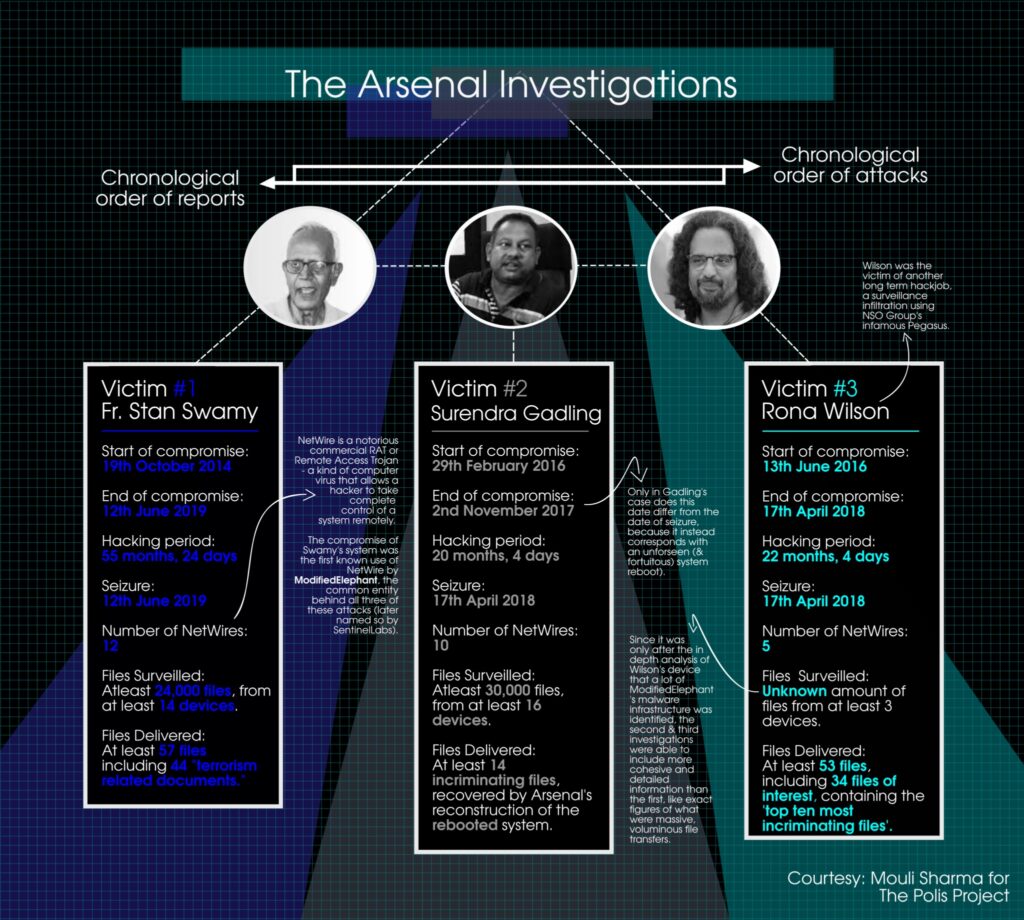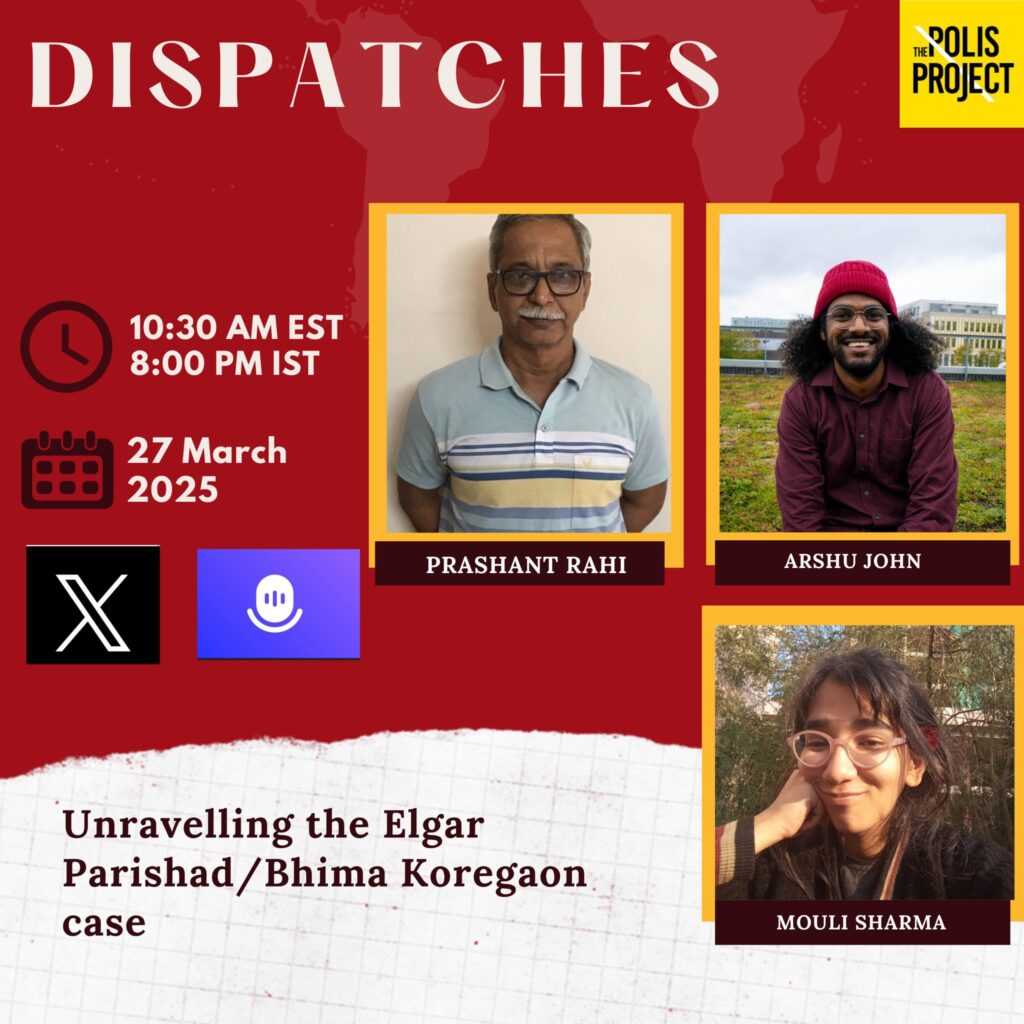How an unsophisticated malware attack became India’s biggest state-sponsored cybercrime / Online Conversation
The Polis Project / by Mouli Sharma and Prashant Rahi
This is the third report in a three-part investigative series on the Elgar Parishad/Bhima Koregaon case. Read part one here and part two here.
In October 2014, five months after the arrest of the professor GN Saibaba, Stan Swamy’s computer was hacked. Unbeknown to the world, the nascent stages of investigation against the prime accused in the Elgar Parishad case, who came to be monikered the BK-16, had already begun in 2014 – four years before any of the arrests even took place.
The unknown attacker used a Remote Access Trojan – or RAT – sent through targeted phishing emails to compromise Swamy’s computer.
Read more
Dispatches: A Conversation on unravelling the Elgar Parishad / Bhima Koregaon case
With Prashant Rahi, Mouli Sharma and Arshu John
By The Polis Project / @project_polis
en | 49min | 2025
Listen to the recording on X Spaces Live
Also read:
▪ Incriminating evidence planted in computers: The Trojan solved the Bhima Koregaon case! (Anchored Narratives / Jan 2023)
▪ Hackers Planted Files to Frame an Indian Priest Who Died in Custody (Wired / Dec 2022)
▪ Police Linked to Hacking Campaign to Frame Indian Activists (Wired / June 2022)
▪ Leaked Data Shows Surveillance Net in Elgar Parishad Case May Have Crossed a Line (The Wire / July 2021)
▪ They were Accused of plotting to overthrow the Modi government – The evidence was planted, a new report says (Washington Post / Feb 2021)
▪ Why the letter about a ‘Rajiv Gandhi-type’ assassination plot to kill Modi is fake (Dailyo.in │ by Arun Ferreira and Vernon Gonsalves │ Jun 11, 2018)

